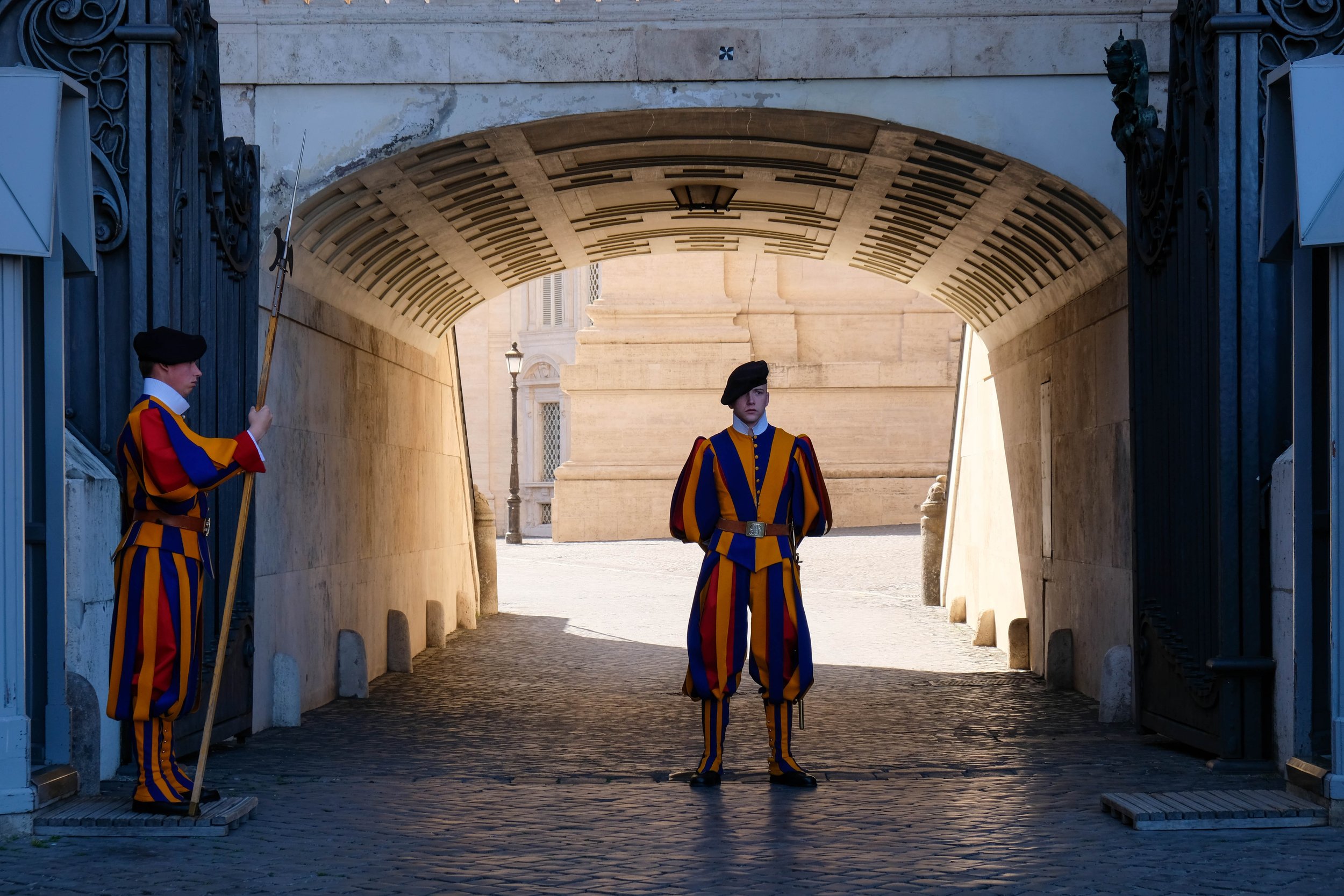Vatican City Law
In the Church there is canon law. And canon law says that the Church needs to not conflict with civil/secular law. An example of this is that before you can petition for a marriage annulment in the U.S., you must first have a divorce decree. In the secular world there are many types of law. There is local, state, and federal statutes as codified law. There are also regulations like the IRS and Commerce codes to name just two of many.
This also happens in Church law. There is the Code of Canon Law and there is particular law. The latter is law particular to a diocese only, for one, (like on fasting and abstinence) and then there are edicts and motu proprios. The one of a kind, and for me the most interesting code of law influenced by the Church, is the law that governs Vatican City as an independent entity.
Prior to 1987, the judicial system of Vatican City was primarily governed by the Code of Canon Law. but, with the growing complexity of legal disputes and the need for a more formalized legal system within Vatican City, Pope John Paul II created the Law on the Judiciary to establish a separate civil court system for the city-state. This law is subject to the authority of the Pope, who has the power to repeal it.
Under the Law of the Judiciary, the Vatican City Court was established as the highest court in the Vatican City legal system, with responsibility for adjudicating civil and criminal cases that fall under the jurisdiction of the Vatican City’s legal system. The court is staffed by judges who are appointed by the Pope and who have the necessary legal training and expertise to serve as judges in the Vatican City legal system. Judges can be clergy or lay.
The prosecutor of the Vatican City Court is also known as the Promoter of Justice. (This is also the term used for the prosecutor in the Code. The person who prosecutes penal cases such as for sexual abuse, is called the Promoter of Justice.) The Promoter of Justice is responsible for investigating and prosecuting cases within the jurisdiction of the Vatican City Court. He is assisted by a team of other prosecutors who investigate and build cases before this court.
The defense attorney who practice in the Vatican City Court are typically licenses attorneys who have the necessary training and expertise to represent clients in criminal and civil cases in other jurisdcitions. They may be Italian or from other countries, and they must be approved by Vatican City authorities before they can practice in the city-state.
Vatican City has a Courthouse, located within the walls of Vatican City, near Saint Peter’s Square. There is also a jail officially known as the “House of Detention”. It is used to hold prisoners who have been convicted of crimes under Vatican City’s legal system. The House of Detention is a small facility, mainly used to hold individuals who have committer minor offenses, such as pickpocketing or vandalism. (Tourists, make a note to hold unto your belongings especially in Saint Peter’s). More serious offenders may be transferred to Italian prisons under a bilateral agreement between the Holy See and Italy.
Right now, under Vatican City law, the Vatican’s “Trial of the Century” is going on in Vatican City. It goes at a snail’s pace. No Speedy Trial Act here. There is no prediction by Vatican watchers when this trial will end. Ten defendants including one Cardinal, are being tried in the civil courts of the Vatican State and not an ecclesiastical tribunal. This trial is going to prompt many more blog posts here in the future!
The Vatican City State Law of Pope John Paul II Can be found at:
https://wipolex-res.wipo.int/edocs/lexdocs/laws/en/va/va004en.pdf
The Vatican City State web site is very interesting and can be found at:
Tags: Vatican City State, The Vatican Courthouse, the Vatican Prison, Promoter of Justice, Canon Law, Church Law.

